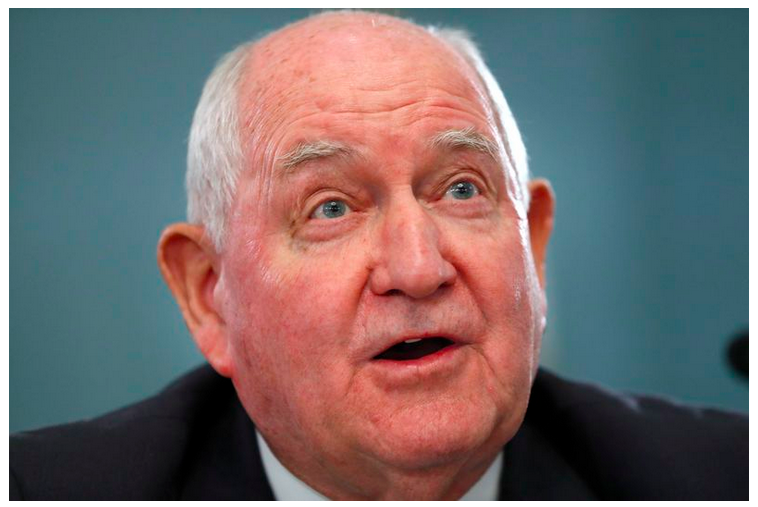New York Daily News: Trump administration showers Brazilian crooks with $62M bailout money meant for struggling U.S. farmers
by Chris Sommerfeldt | May 16, 2019

The Trump administration has forked over more than $62 million — taxpayer cash that was supposed to be earmarked for struggling American farmers — to a massive meatpacking company owned by a couple of corrupt Brazilian brothers.
The Department of Agriculture cut a contract in January to purchase $22.3 million worth of pork from plants operated by JBS USA, a Colorado-based subsidiary of Brazil’s JBS SA, which ranks as the largest meatpacker in the world.
The bailout raised eyebrows from industry insiders at the time, as it was sourced from a $12 billion program meant for American farmers harmed by President Trump’s escalating trade war with China and other countries.
But previously undisclosed purchase reports obtained by the Daily News this week reveal the administration has since issued at least two more bailouts to JBS, even as Trump’s own Justice Department began investigating the meatpacker, whose owners are Joesley and Wesley Batista — two wealthy brothers who have confessed to bribing hundreds of top officials in Brazil.
Both brothers have spent time in jail over the sweeping corruption scandal.
Local prosecutors rescinded the Batistas’ plea deals last year after accusing them of withholding evidence. The seedy brothers aren’t allowed to leave Brazil as their complex cases go to court.
The Justice Department, meanwhile, is probing JBS for possible violations in the U.S. of the Foreign Corrupt Practices Act, according to filings in an unrelated court case reviewed by The News. Reuters reported in December that Justice Department investigators interviewed the Batistas in Brazil late last year as part of that investigation.
Nonetheless, Trump’s Agriculture Department issued $14.5 million in bailout cash for pork products from JBS in February and another $25.6 million earlier this month, totaling more than $62.4 million, according to the purchase reports.
The sheer size of the payouts stoked outrage from industry watchdogs, who question how subsidizing a deep-pocketed, Brazilian-owned company would help farmers in the American heartland.
“Why is the USDA bailing out plants operated by JBS, the largest meatpacker in the world, with a program designed to help domestic companies and producers under economic duress?” said Tony Corbo, a lobbyist at Food & Water Watch, noting that the meat giant reported a net income of $273 million for the first quarter of 2019.
Moreover, JBS appears to have benefited from the trade tensions between Beijing and Washington that the bailouts are supposed to mitigate.
The company’s exports to China ballooned to more than 24% in 2018, compared to less than 21% the previous year, according to public records, raising questions about the need for the Trump subsidy.
“This company does not seem to be hurting,” Corbo said.
By comparison, a similar Trump bailout to Virginia-based Smithfield Foods, which is owned by a Chinese firm, was cancelled last year amid pushback from members of Congress that money meant for American farmers was ending up in the hands of foreigners.
JBS declined to comment beyond a statement it issued in January saying that, despite being foreign owned, it is “proud to partner with U.S. family farmers and ranchers, helping to create economic opportunity in hundreds of small, rural towns.”
Democrats voiced outrage at the fact that the administration is subsidizing a foreign-owned company controlled by admitted crooks.
“It is clear the president is not the least bit knowledgeable about trade policy, nor aware of the chaos his failed approach has caused‚” said Connecticut Rep. Rosa DeLauro, who introduced a bill earlier this year restricting the administration’s bailouts to American-owned companies.
“We now know that tens of millions of these dollars went to large, multinational corporations — including Brazilian-owned JBS — who are racking up profits while family farmers face collapse. That is outrageous.”
In addition to payment restrictions, DeLauro’s bill would require the Agriculture Department release explanations for its bailouts.
“Their incompetence and lack of transparency has shown that they cannot be trusted to get this right,” she said.
A spokesman for the Justice Department declined to comment. The White House referred to the Agriculture Department, which also declined to comment.
The Agriculture Department has not explained its thinking in bailing out JBS, and it’s unclear whether the administration was aware of the company’s corrupt history before issuing the payments.
What is known is that the administration was alerted to scandals swirling about JBS over a year before the first bailout.

In a June 2017 letter addressed to Trump, Agriculture Secretary Sonny Perdue and then-Attorney General Jeff Sessions, farm trade group R-CALF called on the Justice Department to investigate JBS over possible corrupt business practices in the U.S.
“From unlawfully securing loans to abusing pension funds to selling tainted beef to bribing government officials to violating Amazon rainforest protection laws to insider trading, the list of inexcusable conduct that JBS allegedly committed is incomprehensible,” R-CALF wrote in the letter.
“The fact that JBS was allowed to build its political and economic monopoly in the United States with impunity raises the specter that decisions regarding JBS, at nearly every level of government, were based on inappropriate considerations.”
The JBS bailouts have gained renewed significance in light of the administration’s collapsing trade talks with China and Trump’s repeated pledges to help American farmers.
Trump maintains China will pay for the tariffs he’s imposing on the country’s exports to the U.S., even as his own top economic adviser, Larry Kudlow, said in an interview last weekend that American consumers will have to cover much of the bill.
China has responded to Trump’s tariffs with retaliatory levies on American exports, harming American farmers of soybean and other crops. Many of those farmers are relying on federal bailouts to stay afloat.
Including the JBS bailouts, the administration doled out $11 billion in relief payments to farmers hurt in the trade war last year.
Trump said earlier this week that more aid is on the way.
“Our great Patriot Farmers will be one of the biggest beneficiaries of what is happening now,” Trump tweeted on Tuesday. “The Farmers have been ‘forgotten’ for many years. Their time is now!”